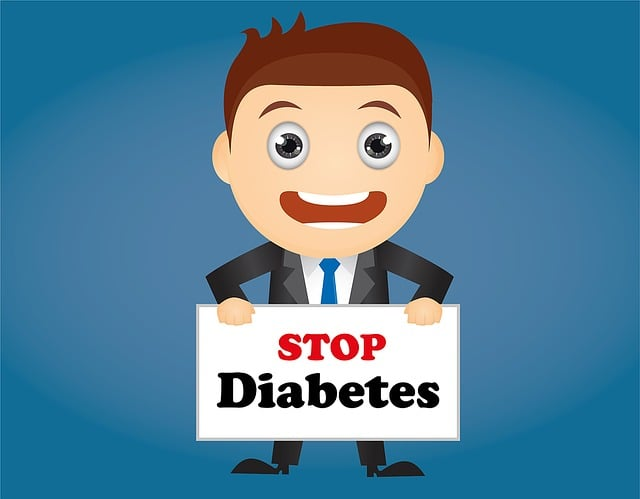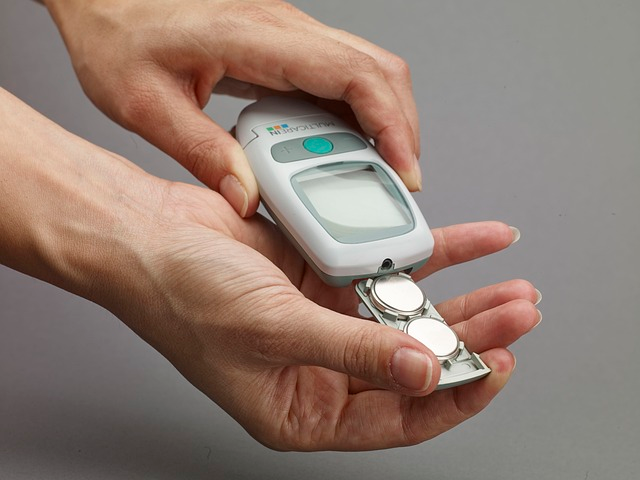As a BetterHelp affiliate, we receive compensation from BetterHelp if you purchase products or services through the links provided
Have you ever experienced that irresistible urge to nap after a satisfying meal? Many of us have, and while it’s often brushed off as the result of overindulgence or a hearty feast, there might be more to it than meets the eye. Post-meal drowsiness, commonly known as the “food coma,” could hold clues to our health. This discussion will explore the intriguing connection between post-meal drowsiness and diabetes. Understanding this link is crucial, as it sheds light on the body’s response to food and its potential implications for our overall well-being. So, let’s dig into this phenomenon and unravel the mysteries behind the post-feast siesta.
Is Feeling Sleepy After Eating A Sign Of Diabetes?
Feeling drowsy after eating is common and not always a sign of diabetes. However, in some cases, it can be associated with diabetes, particularly when blood sugar levels fluctuate.

Understanding Post-Meal Drowsiness
Post-meal drowsiness, often called a “food coma,” is a state of sleepiness or fatigue experienced after consuming a meal. It’s characterized by a sudden drop in energy levels and a strong desire to rest.
Normal Response To Feeling Sleepy After Eating
Feeling sleepy after a meal can be a normal physiological response. It occurs because digestion diverts blood flow to the stomach and intestines, temporarily decreasing alertness. This natural phenomenon typically subsides as the body finishes processing the meal.
Also Read: Can You Sleep Standing Up?
The Link To Diabetes
There is a potential link between post-meal drowsiness and diabetes. After eating, blood sugar levels can spike, especially in individuals with diabetes or insulin resistance. The body’s efforts to regulate these levels may result in feelings of fatigue and drowsiness.
Drowsiness As A Sign Of Underlying Diabetes
Post-meal drowsiness may serve as an early warning sign of underlying diabetes. Prolonged and recurring drowsiness after meals, coupled with other diabetes risk factors, should prompt individuals to consult a healthcare professional for proper evaluation and diagnosis. Understanding this connection can be crucial for early detection and management of diabetes, ultimately contributing to better health outcomes.
Causes Of Post-Meal Drowsiness
Post-meal drowsiness, often called “food coma,” can result from various factors, and it’s not necessarily linked to diabetes. Common causes include the body’s digestive processes redirecting blood flow, high carbohydrate intake leading to blood sugar spikes and crashes, overeating, the consumption of alcohol, and the body’s natural circadian rhythm. While post-meal drowsiness is typically harmless, it can sometimes indicate underlying issues, and if it persists or is accompanied by concerning symptoms, consulting a healthcare professional is advisable for evaluation and guidance.
Food-Related Factors
The type and quantity of food consumed can significantly influence post-meal drowsiness. Key points related to this subtopic include:
- Carbohydrates: Eating meals high in carbohydrates, like sugars and starches, can lead to high blood sugar levels followed by a subsequent drop. This decrease in blood sugar levels after eating may contribute to the onset of drowsiness.
- Protein: Protein-rich meals may have a more stabilizing effect on blood sugar levels and can promote alertness. However, excessive protein intake can still lead to drowsiness due to the energy required for digestion.
- Fats: High-fat meals can slow down digestion, which may lead to feelings of sluggishness and drowsiness. However, healthy fats like those found in nuts and avocados may have a milder effect than saturated fats.
- Meal Size: Overeating, regardless of the food type, can require more energy for digestion and result in post-meal drowsiness.
- Balanced Meals: A balanced meal that includes a combination of carbohydrates, protein, and healthy fats, along with plenty of fruits and vegetables, can help with blood sugar control and reduce the likelihood of post-meal drowsiness.
- Hydration: Dehydration can also contribute to feelings of tiredness, so drinking water with your meal can help maintain alertness.
Understanding the impact of food type and portion size can be valuable in managing post-meal drowsiness and promoting overall well-being.
Also Read: Magnesium for Kids Sleep: A Natural Solution for Bedtime Bliss
The Role Of Sugar, Carbohydrates, And Insulin Levels
The role of sugar, carbohydrates, and insulin levels in the causes of falling asleep after eating is significant. Here’s how these factors are interconnected:
- Sugar and Carbohydrates: Sugar and carbohydrates are the body’s primary energy sources. When you consume carbohydrates, they are broken down into glucose (sugar) and released into the bloodstream. Consuming excessive quantities of simple carbohydrates, such as those present in sugary snacks and processed grains (for example, white bread and white rice), can increase blood sugar levels following a meal. This spike is often followed by a subsequent drop in blood sugar, which can result in feelings of drowsiness and fatigue.

- Insulin Levels: Insulin is a hormone produced by the pancreas in response to rising blood sugar levels. Its primary role is facilitating glucose uptake by cells for energy or storage. When you consume a meal high in carbohydrates or sugars, the body releases insulin to help regulate blood sugar levels. However, excessive consumption of high-carb or sugary meals can lead to an overproduction of insulin, which can cause a rapid decrease in blood sugar levels (hypoglycemia). Hypoglycemia is often associated with symptoms like dizziness, shakiness, and, yes, drowsiness or sleepiness.
To manage post-meal drowsiness and stabilize energy levels, it is advisable to consume balanced meals that include complex carbohydrates, protein, and healthy fats, leading to a more gradual and sustained release of glucose into the bloodstream.
Other Contributing Factors
Factors beyond diet can influence drowsiness after meals. These include sleep patterns, hydration, stress, physical activity, alcohol consumption, medical conditions, medications, caffeine intake, psychological factors, and environmental conditions. Understanding and addressing these non-dietary factors are crucial for managing post-meal drowsiness and promoting overall well-being. If this drowsiness persists and affects daily life, seeking guidance from a healthcare professional is recommended.
Stress And Post-Meal Fatigue
When stressed, the body releases cortisol, which can interfere with digestion and lead to feelings of fatigue after eating. In this case, it’s not solely the food but the emotional state contributing to post-meal fatigue. Understanding these factors can help individuals make informed choices about their meals and lifestyle to mitigate post-meal drowsiness.
Also Read: How to Sleep with Transverse Baby: Comfortable Positions for Expecting Mothers
Symptoms And Health Implications
Symptoms and health implications of post-meal drowsiness can vary. Common symptoms include:
- Sleepiness: The individual will feel tired and strongly urged to sleep after eating.
- Fatigue: A general sense of weariness and lack of energy.
- Drowsiness: Experiencing a tendency to fall asleep or a decrease in alertness.
- Reduced Productivity: Difficulty concentrating or being less productive due to sleepiness.
- Irritability: Becoming easily agitated or moody as a result of drowsiness.
The health implications of post-meal drowsiness are typically mild and related to temporary changes in energy levels. However, persistent or excessive post-meal drowsiness can impact daily functioning, work, and quality of life, potentially leading to decreased productivity and well-being.
Symptoms Of Post-Meal Drowsiness
It’s important to distinguish the above symptoms from regular tiredness, such as the fatigue experienced after a long day or physical exertion. Here’s how they differ:
Post-Meal Drowsiness
- Timing: Post-meal drowsiness occurs shortly after eating, often within 30 minutes to 2 hours after a meal.
- Trigger: It is specifically linked to meals, and the consumption of certain foods, especially high-carbohydrate or high-sugar meals, can exacerbate it.
- Duration: Post-meal drowsiness is relatively short-lived and typically resolves within a few hours.
- Associated Factors: It is more likely to be associated with factors related to digestion, blood sugar fluctuations, and the type of food consumed.
- Frequency: It is a sporadic and occasional occurrence rather than a daily or constant feeling.
Regular Tiredness
- Timing: Regular tiredness can occur at any time, not necessarily after eating, and is often associated with the end of the day or physical exertion.
- Trigger: It is not explicitly linked to meals or food choices.
- Duration: Feeling tired is part of the body’s natural daily rhythm, which may be alleviated by rest or sleep.
- Associated Factors: It is more likely associated with a long day, strenuous activity, or lack of sleep.
- Frequency: Regular tiredness can be a daily occurrence, especially in the evening, and it is a normal part of the sleep-wake cycle.
When Post-Meal Drowsiness Becomes A Problem
Post-meal drowsiness should be a concern when it becomes frequent, severe, or disrupts daily activities. If it is persistent and associated with other risk factors, it may warrant further investigation.
Health Implications And Diabetes Risk
Unmanaged post-meal drowsiness, especially from frequent high-sugar or high-carbohydrate meals, can contribute to weight gain and insulin resistance. This, in turn, increases the risk of developing type 2 diabetes over time.
Assessing Diabetes Risk Based On Drowsiness Patterns

Assessing your diabetes risk based on drowsiness patterns involves tracking how often and intensely post-meal drowsiness occurs. If it is a recurring issue, and you have other risk factors, such as a family history of diabetes or obesity, it’s advisable to consult a healthcare professional for a comprehensive evaluation and preventive measures. Understanding these symptoms and their implications is crucial for managing one’s health effectively.
Also Read: Dreams of Dracula: 9 Parental Tips for Post-Candy Crash & Trick-or-Treat Trek
Management And Prevention
To reduce post-meal drowsiness, eat balanced meals with carbohydrates, protein, and healthy fats to stabilize blood sugar levels and energy. Practicing mindful eating by paying attention to portion sizes and eating slowly can prevent overeating and aid digestion. Staying hydrated by drinking water with meals helps combat fatigue, and limiting the consumption of simple carbohydrates like sugary snacks and refined grains can prevent rapid blood sugar spikes.
 Lifestyle Changes
Lifestyle Changes
Making lifestyle changes can also help manage post-meal drowsiness:
- Regular Physical Activity: Incorporate regular exercise into your routine, as it can boost energy levels and aid digestion.
- Stress Management: Practice stress-reduction techniques like mindfulness, meditation, or yoga to minimize the impact of stress on digestion.
- Avoid Excessive Alcohol: Limit alcohol consumption, especially during meals, to prevent drowsiness.
Preventing Diabetes
To reduce the risk of diabetes, consider these preventive measures:
- Healthy Diet: Maintain a well-rounded diet that includes abundant fruits, vegetables, whole grains, lean protein sources, and wholesome fats while restricting the intake of sugary and highly processed foods.
- Participate in consistent physical activity to uphold a healthy weight and enhance your body’s response to insulin.
- Weight Management: Achieve and maintain a healthy weight, as obesity is a significant risk factor for type 2 diabetes.
- Blood Sugar Monitoring: If you notice diabetes symptoms or are at risk, monitor your blood sugar levels regularly and follow your healthcare provider’s recommendations.
Importance Of Regular Check-ups And Early Detection

Regular check-ups and early detection are crucial for preventing and managing diabetes.
- Routine Screenings: Attend regular medical check-ups and screenings to detect diabetes or prediabetes in its early stages.
- Family History: Be aware of your family’s history of diabetes, as genetics can play a role.
- Awareness of Symptoms: Familiarize yourself with the common symptoms of diabetes, such as increased thirst, frequent urination, and unexplained weight loss. If you experience these symptoms, seek medical attention.
By following these strategies and staying proactive about your health, you can effectively manage post-meal drowsiness and reduce the risk of diabetes.
Conclusion
Feeling sleepy after a meal is quite common, but it can sometimes be an early sign of diabetes or other health problems. This article provides guidance on how to manage post-meal drowsiness through a balanced diet and lifestyle changes and also suggests measures to reduce the risk of diabetes. It emphasizes the importance of regular check-ups and early detection in preventing and managing diabetes. By paying attention to their health and taking proactive measures, individuals can improve their overall well-being and lower the chances of developing diabetes.
- Left Arm Pain and Anxiety: Understanding the Relationship - November 23, 2023
- Anxiety Paralysis: Coping with Overwhelming Stress - November 23, 2023
- Anxious vs. Nervous: Differentiating Emotions and Responses - November 15, 2023
This site contains affiliate links to products. We will receive a commission for purchases made through these links.


 Lifestyle Changes
Lifestyle Changes
